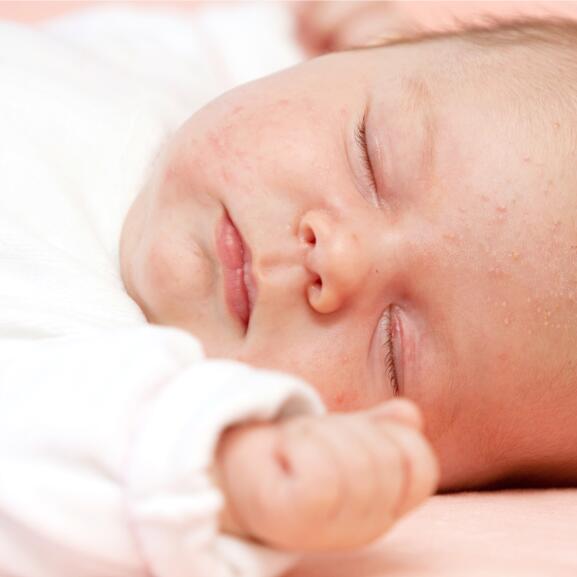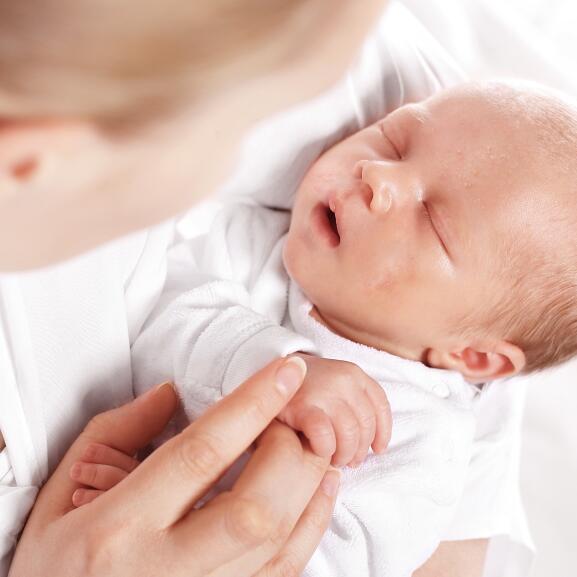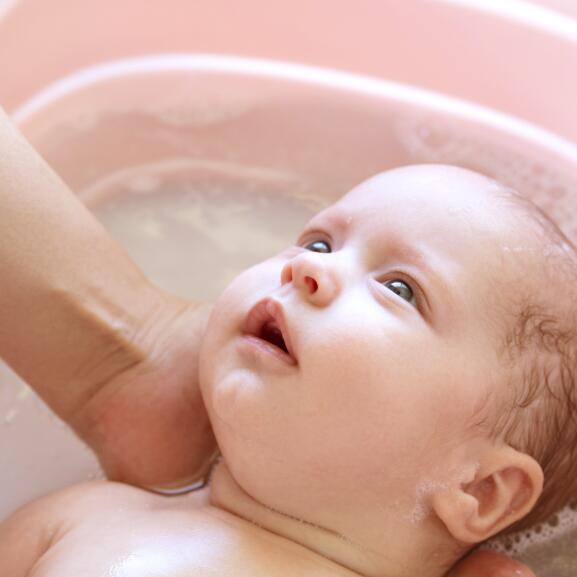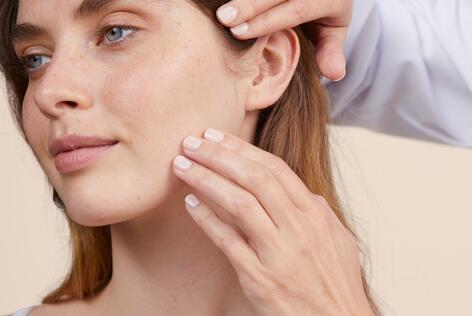Infant acne
Infant acne
Acne can sometimes affect an unexpected audience: infants. If lesions characteristic of this form of acne appear on your baby's face, don’t panic (especially as they’re not painful). Baby acne clears up spontaneously within a few weeks and is much more common than it seems. In the meantime, here are a few tips on how to keep your baby's skin soft.

What is infant acne?
Infant acne is not so rare. It affects 1 in 5 newborns between the ages of 0 and 3 months, more frequently boys. It manifests itself as small red or white pimples and closed comedones that are hardly visible, mainly on the cheeks, but also on the forehead and chin (more rarely on the shoulders, back and chest). Although it may cause parents distress, infant acne is not painful or itchy. Nor does it predispose them to future juvenile acne.
My little one started out with small pimples on his forehead, then it spread to his nose, cheeks, under his eyes and even in his hair! The paediatrician reassured me and advised me to moisturise and wash his skin with gentle care products, and indeed it’s starting to subside...
Anne, 28 years old
What causes infant acne?
The reasons why an infant will develop acne are not completely established. However, it seems that it’s mainly due to the mother's residual androgenic activity. In other words, the strong hormonal surge experienced by the mother at the end of her pregnancy would stimulate the baby's sebaceous glands. Another possibility is that mum and dad use greasy substances to clean the child's face. So avoid this...

FRIENDLY (AND EXPERT) ADVICE
Pimples on their little face? Don't touch them!
A piece of advice that applies just as much to infant acne as to teenage or adult acne: don't touch your baby's lesions and, above all, don't try to pop their pimples. Even at this age, there is a real risk of secondary infection and scarring as a result of these manipulations. And if your child's acne lesions persist, don't hesitate to ask your paediatrician or dermatologist for advice.
How should I care for my baby's skin?
In most cases, baby acne heals spontaneously within a few weeks and does not require any specific treatment. This should not stop you from caring for your baby's skin with safe and appropriate products.
Which products should you choose?
Choose products with a minimum amount of ingredients, without fragrances, colourants, alcohol or parabens. Check that they are suitable for the most fragile skin and that they’ve been tested under paediatric and dermatological control.
The bare minimum
Less is more. Limit yourself to the essentials—the basics. A cleanser specially designed for baby, a thermal spring water and a moisturiser that will soothe and nourish the skin.
The right way to clean your baby's face
Baby's face is most often cleaned during bath time. Soak a cotton pad or a compress with a cleansing product and then wipe it over the child's face, starting with the forehead and temples, then the cheeks, the sides of the nose, and finishing with the chin and mouth. When their bath is over, gently pat the face dry. Then apply a moisturiser.

Our solutions for your baby's skin
Eau Thermale Avène skin care products designed to take care of your baby's skin
- Repairing Protective Cream
Cicalfate
Repairing Protective CreamSoothes - Repairs - Purifies1 opinions - Avène Thermal Spring Water Spray
Thermal Spring Water
Avène Thermal Spring Water SpraySoothes - Restores the skin barrier - Calms
NEWSLETTER
We’re always here for your skin!
All our tips for taking care of your skin day to day.

Which skin care routine should you adopt?
Identify what it really needs with the help of our experts and discover the most suitable skin care routine for you.


